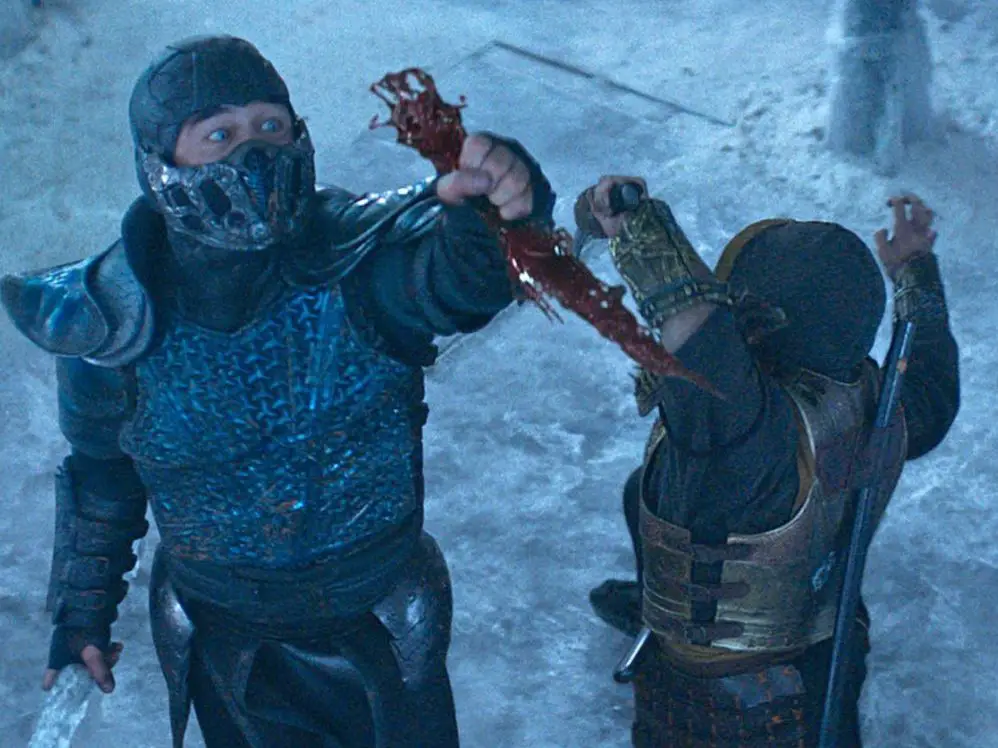Hollywood is constantly trying to produce films that will bring in large audiences, and what has a larger audience than video games? Game sales surpassed both movies and the North American sports industry combined in revenue in 2020 (largely thanks to the COVID-19 pandemic), so of course, screenwriters would want to get in on that type of money. For as long as video games have been financially successful, Hollywood has tried to piggyback off of their success by adapting well-known game series to films, often with disastrous results. This year’s “Mortal Kombat” is another example of screenwriters’ adaptations of game franchises going awry. It sacrifices much of the original games’ charm and leaves fans feeling unsatisfied.
“Mortal Kombat” centers on the events leading up to the Mortal Kombat tournament. This once-in-a-generation cosmic event determines the fate of the world (called Earthrealm) through a series of gladiatorial death matches. If the champions of Earthrealm lose the tournament 10 times in a row, then Earthrealm can be conquered by the demonic denizens of Outworld, a hellish dimension of pure evil. Naturally, Outworld has already won nine such tournaments, and is poised to conquer Earthrealm. All of this lore, which is fairly complex for a simple fighting game, is taken straight from the 18 Mortal Kombat video games. The film takes place before the tournament, meaning that technically there is no official Mortal Kombat in the film, but that’s the least of its problems.
The story focuses on struggling MMA fighter Cole Young, an original character not present in any of the games, who discovers that his birthmark indicates he is one of Earthrealm’s champions. This makes Cole a target of the forces of Outworld, who seem intent on killing the entire opposing team before the tournament even begins, which would allow them to win by default. So, of course, he is recruited by the rest of Earthrealm’s champions to assemble their team and train for the tournament, all the while avoiding being murdered by the opposing team. It’s a premise bogged down by its convoluted mythology, and though the filmmakers have done an admirable job of streamlining the plot of 18 games into a single film, it ultimately falls apart.
From the outset, “Mortal Kombat” faced a steep challenge. The games on which it is based are tent-poles of fighting game history — by far the most successful games of their genre in Western markets. Much of their early success derived from their over-the-top violence, which made them extremely controversial (and thus extremely appealing) to children when they debuted in the 1990s.
The franchise’s unexpected blockbuster success led to mountains of merchandising and tie-ins as well as two film adaptations: the cult classic eponymous 1995 film and its universally loathed sequel, “Mortal Kombat: Annihilation.” The 2021 film had to not only bring in new audiences but also satisfy fans of both the games and the original film. It was not able to live up to such lofty expectations.
Get over here! #MortalKombatMovie Early Access, Own It 6/11 – https://t.co/OLlIJD00LF pic.twitter.com/OYBpSpI5dD
— Mortal Kombat Movie (@MKMovie) June 3, 2021
One trend of Hollywood video game adaptations that “Mortal Kombat” continues is the use of an original main character. While there is nothing wrong with adding original characters to an established setting, doing so doesn’t work here because Cole (portrayed by Lewis Tan) is such a blank slate. His back story is incredibly basic, and its connection to the overarching plot is lackluster, especially in regard to the decision to make Cole a sort of messianic figure who somehow is just as powerful, if not more so, than the established characters. He is widely well-liked despite his lack of training and nonexistent personality.
It’s clear he was written as an audience stand-in; in many scenes, he is confronted by established characters who explain the plot to him. This happens to an almost comedic degree, and these exposition dumps occur all the way up until the “final” confrontation with the film’s antagonists.
The use of an audience stand-in is another symptom of the film’s most significant problem: its simultaneous disregard for the games’ stories alongside its desire to have as many Easter eggs and nods to the games’ overarching lore as possible. The Mortal Kombat game series features hundreds of characters, and the film’s writers chose to name-drop and use as many characters as they could, even where it didn’t make sense to do so. As a result, several fan-favorite characters have been reduced to nameless henchmen whom the plot quickly discards.
https://www.instagram.com/p/COBBdNBjPfy/?utm_source=ig_web_copy_link
The issues that plague “Mortal Kombat” are present in many video game film adaptations, but interestingly, it has proven much more successful than the adaptations that came before it. While much of its success at newly reopened box offices may have stemmed from the end of pandemic restrictions, it’s also possible that Mortal Kombat was a perfect franchise to adapt to film.
Compare Mortal Kombat (the games) to other franchises that have failed at the box office. Movies such as “Assassin’s Creed” and “Resident Evil,” both based on highly cinematic games with involved stories, floundered critically and commercially. The more fleshed out a story is in a game, the worse a film adaptation typically does both critically and at the box office, and that makes sense. Why watch a film adaptation of your favorite game when you could just play the game itself? This theory is supported by the ticket sales for “Sonic the Hedgehog,” a film that uses only three characters from the game series. It sits atop the box office for video game adaptations because it lacks an overarching plot beyond a fast hedgehog.
“Mortal Kombat” presented an altogether mixed bag of reactions. Critics derided it for its simultaneously convoluted and half-baked plot, while fans of the games criticized it for its deviations from the source material. Ultimately, the box office will dictate the franchise’s future. Unfortunately, based on the film’s current performance, Hollywood has no reason to change its formulas for adapting games to the silver screen.

















